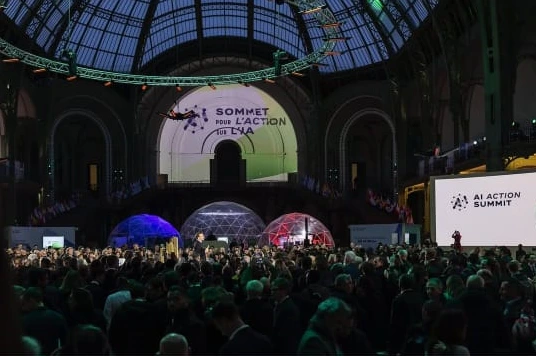Artificial Intelligence (AI) is no hype — it is the dawn breaking in front of us. The rate at which technology changes from self-learning chatbots to AI medical advancements is mind-blowing. With great power comes great responsibility. The recent Paris AI Summit was a highly strategic event of world leaders, tech innovators and policymakers to map out where we go next as a society.
The big question? Should AI be unleashed for maximum innovation, or should governments step in with strict regulations? The summit revealed a divide—some want AI to drive economic growth at full speed, while others fear a world dominated by unchecked machine intelligence.
Battle of Perspectives: Innovation vs. Regulation
One thing was clear at the summit—there no universal agreement on how AI should be governed. Here’s how different global powerhouses are approaching the AI revolution:
United States: A Hands-Off Approach
Silicon Valley’s biggest names, along with U.S. policymakers, are advocating for minimal government intervention. Their stance? Let AI evolve freely to maintain a competitive edge over China and other global players. U.S. Vice President JD Vance made it clear that overregulation could cripple innovation and slow economic progress.
The biggest players in Silicon Valley, plus U. S. policy makers; are pushing hard for limited government interference. Their solution? Free AI to be able to be ahead of China and other world players in the evolution process Referential Action. We have U.S. Vice President JD Vance made the point overregulation kills innovation and slows economic growth.
Europe: A Balancing Act
The European Union (EU) announced a €50 billion fund to support AI research while ensuring ethical standards. Europe is pushing for AI advancements but remains cautious about privacy concerns, misinformation, and job displacement. It’s a fine line between innovation and control, and the EU is determined to find the middle ground.
China: AI at Full Throttle
China, always a formidable player in the AI race, introduced DeepSeek, a powerful AI model aimed at competing with Western tech giants. With state-backed funding and strategic investments, China is not just embracing AI—it’s using it to shape its economic and military future. This aggressive push has made other nations wary about China’s increasing dominance in the field.

France Steps Up 2025: A Tech Hub in the Making
The host country, France, made headlines with €109 billion in private investments aimed at making it a global AI powerhouse. Companies like Brookfield and the UAE’s investment funds are backing France’s vision, signaling that Europe wants a stake in the AI revolution. President Emmanuel Macron’s message was clear: France is ready to lead the AI wave.
Why This Matters for Everyday People
AI isn’t just about governments and billion-dollar investments. It’s already reshaping daily life—from personalized shopping recommendations to AI-driven healthcare diagnostics. But there’s another side to this story:
- Job Market Shakeup: While AI creates new opportunities, it also threatens traditional jobs. Will automation replace more workers than it benefits?
- Privacy and Ethics: With AI’s ability to analyze vast amounts of data, how safe is personal information?
- Misinformation Battles: AI-generated deepfakes and misinformation campaigns are rising concerns. How do we distinguish fact from fiction in a world dominated by AI content?
Big Takeaway: Future of AI is Unwritten
There is one thing for sure: Paris AI Summit was no ordinary tech conference. An epoch-making event to show how hard the world will find itself in trying to balance the AI-led progress and responsible governance. What we do today, will determine how AI will influences businesses, governances and a society for generations to come.
The AI race is on, and the world is watching. Which side will win—unrestricted innovation or careful regulation? Only time will tell.
